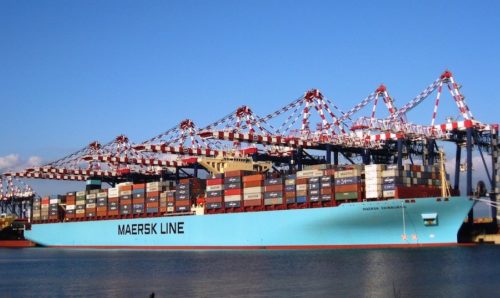
Danish conglomerate A.P. Moller–Maersk reported “solid progress” in the second quarter of 2019 as its Ocean business witnessed continued recovery.
Earnings before interests, tax, depreciation and amortisations (EBITDA) increased by 17% to USD 1.4 billion from USD 1.2 billion reported in the same period a year earlier. The change was attributed to an increase of USD 212 million in Ocean, driven by higher freight rates and volumes as well as strong operational efficiency.
Operating profit (EBIT) increased from USD 65 million to USD 416 million, reflecting an improvement in margin to 4.3%, while underlying profit was positive by USD 134 million compared to USD 15 million a year earlier.
Revenue grew slightly by USD 59 million and was on par with the second quarter last year at USD 9.6 billion with an increase of USD 198 million in Ocean and USD 110 million in Terminals & Towage, partly offset by revenue decrease in Manufacturing & Others mainly due to the exit from the dry container business and 30% lower revenue in the reefer segment as well as the divestment of bulk activities originally acquired from Hamburg Süd.
“Q2 was a quarter of solid progress. EBITDA was up 17% and cash flow improved 86% year on year, driven by continued recovery in Ocean,” Søren Skou, CEO of A.P. Moller – Maersk, said.
“The transformation progressed further with an improved cash return on invested capital of 6.9% and synergies of USD 1bn realised earlier than expected. Growth in revenue and gross profit in Logistics & Services still need to improve as we continue to build capabilities within logistics and services,” Skou noted.
A.P. Moller – Maersk reiterated its guidance still expecting earnings before interests, tax, depreciation and amortisations (EBITDA) of around USD 5 billion.
The organic volume growth in Ocean is still expected to be in line with the estimated average market growth of 1-3% for 2019.
“We reaffirm our guidance for 2019 while the macro environment continues to be subject to considerable uncertainties.”